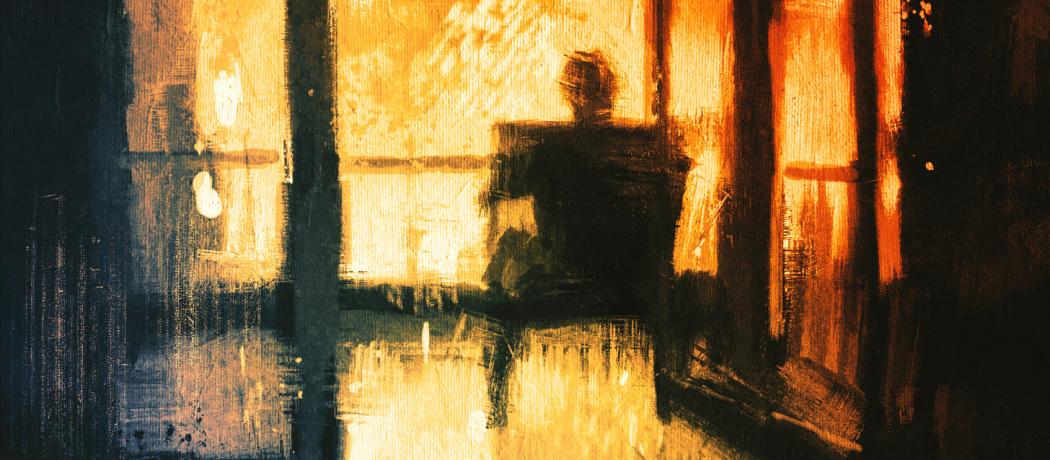My wife died 2 weeks before our 66th wedding anniversary, having spent the previous 9 years in the grips of dementia. On her last evening on Earth she went to sleep as usual, but never woke up.
For close to 7 years, over 50 different shift-working caregivers looked after her. In her last 2 years live-in caregivers provided wonderful care for her at home. She spent the last 6 weeks of her life at a long-term care facility. I visited her on most days. She had no idea who I was, but I felt connected to her and I was involved with her. With occasional staff shortages, I had more chances to touch her, caress her face, comb her hair, feed her. Now, remembering all that, it is with an ongoing aching sadness that I mourn her absence from my arms and my life. She was my friend, a companion, a loved one, a lover, a confidant, a motivator, an organizer, and a concerned and loving mother of our now senior-aged children.
I expected that she would fade away over the dementia years, but her death still came as a shock to me. I had anticipated profound sadness when the inevitable happened, but I was unprepared for other complicated and conflicting feelings.
First, within my sadness, I also experienced relief. Relief that her suffering had come to an end. Relief that my role as a powerless companion was over. Then, within 1 or 2 days, I experienced another feeling that I had trouble identifying. It came to me that my purposeful focus on her requirements had suddenly come to an end. Until her death, my life revolved around the technical and administrative aspects of her illness for many years. I realized that now my roles as husband, medically informed carer, provider, and protector were finished. It was a feeling of not being needed anymore. I felt as if I had lost my job.
I had no mourning rituals. I did kiss the cold skin of her forehead and muttered goodbye. There was no family gathering, except by phone due to the current pandemic. We did not have a funeral, by mutual consent many years ago. Following her wish, her body was donated to the UBC Medical School. There were legal requirements to follow—obtaining the death certificate, opening her will, which was written before her dementia set on, and opening the safety deposit box to find her valuables, which we had put away years and years ago when her cognition started to dim.
As a response to the finality of her departure my regimented timetable fell apart. I became tired, slept poorly, did not go for my daily walks, pulled back from my regular rowing (although the poor weather might be responsible for that). I could not put my mind to write my regular blog posts for the BCMJ. I was mourning in my own confused way.
Most cultures have their own long history of mourning traditions to ease the pain of loss. In my early youth in my native Hungary, when family members, even distant relatives, died, we had to wear a black armband on our clothing and were not allowed to go to the movies for 2 or 3 months, and we visited the cemetery for several Sundays. Thinking back to my early years, it was probably a useful cultural routine to ease the pain, but I don’t think I understood then the purpose of those rituals. What I do remember is that in one mourning period I regretted missing Snow White’s first cinematic showing in 1938.
I cannot remember ever talking about death and dying, and the impact of this terminal event on a family, during my medical school training. In today’s culture in the Western world, death has become a medical issue. Death became something to be fought by specialists. Talking openly about death both publicly and in medical circles was formalized only in 1969 when Dr Elizabeth Kubler-Ross published On Death and Dying. In her book she postulated five emotions experienced by those who are grieving: denial, anger, bargaining, depression, and acceptance. I met Dr Kubler-Ross when she visited UBC in the early 1970s to provide lecture-seminars to medical and nursing students. She told the assembled students that she saw these stages as reflecting how a person might be coping with illness and dying. But she emphasized that that is not necessarily how the people surrounding the dying cope or grieve.
What has stood out for me in the last 2 months is how understanding and kind people have been to me. I had loads of emails to answer and phone calls and hugs from friends, and all that helped me. But my ache of sadness still washes over me from time to time, particularly as I lie in bed struggling to get to sleep.
However, life marches on. Our house of 60 years has been sold. Perhaps luckily, I had to put myself together to organize my environment for the eventual move into an apartment. But I still don’t have a clear vision of the next phase of my life.
—George Szasz, CM, MD
If you are grieving and in need of support, please know that the BC Physician Health Program (PHP) is here for you and your family members. The PHP is a highly skilled team of physicians and allied health care professionals who can connect you with physician-specific resources and supports such as counseling, referrals to community services, peer support, and more.
Call PHP’s 24/7 helpline at 1 800 663-6729 for confidential, personalized support.
Email info@physicianhealth.com or visit www.physicianhealth.com to learn more.
This post has not been peer reviewed by the BCMJ Editorial Board.
 |
| This work is licensed under a Creative Commons Attribution-NonCommercial-NoDerivatives 4.0 International License. |


Excellent/emotional read. Sending you strength.